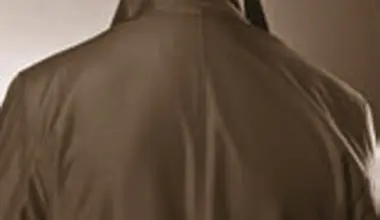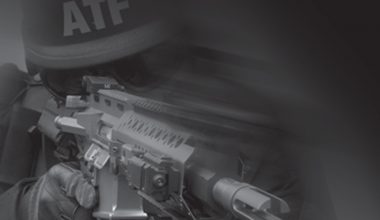ARE you part of the middle class? A growing number of people are saying they’ve fallen from that comfortable perch, and statistics back them up.
The number of people on food stamps has more than tripled since 2000. The Census Bureau classifies about 146 million people—close to half the population of the country—as “poor” or “low income.” Working people have fled states like New York and California, where living costs and regulations are brutal, and fled to states like Texas, where they make less money but costs are lower and people have more flexibility.
Government statistics tell us we’re in a recovery from a recession that ended way back in 2009. They tell us that, while unemployment rates are still unacceptable, they’re improving month by month. They tell us to look on the bright side: because of economic hard times, there is no inflation.
But we all know the “recovery” money isn’t coming to our neighborhood. We know from John Williams’ ShadowStats website that unemployment is near Great Depression levels when counted the way it was prior to the Clinton era (government statisticians no longer count those who’ve run out of unemployment and abandoned the job search entirely, even though they are the hardest hit).
We know that the real inflation rate, whatever it may be, is no longer being accurately tallied by a politically jiggered Consumer Price Index. We know our groceries and other necessities are getting more expensive.
Corporate profits as a percentage of gross domestic product (GDP) are at an all-time high. Wages as a percentage of GDP are at an all-time low. In the two years between 2009 (when the recession “ended”) and 2011, the wealth of the bottom 93% of all Americans declined by 4%. The other 7% saw their wealth soar by 28%. In two years.
This is no “recovery.”
The money from this recovery-thatisn’t is benefiting primarily the elite and the client-poor of the welfare state. But guess who’s expected to pay the bills?
The middle class has been squeezed for many years. But politicians and bureaucrats haven’t yet found the point at which the vast productive class can no longer profitably produce juice. They’re close, though. And I can tell you when the final, fatal tightening of the grip began: October 1, 2013. That’s the date Obamacare went live—in much the same way that Viktor Frankenstein’s patched-together monster “went live” in the old movies.
I’m not just talking about an overpriced and non-functional website. The underlying law is the real disaster. Anybody in the middle class, particularly the young, up-and-coming middle, will end up not only paying more for insurance and out-of-pocket health care, but will now also have to subsidize both the poor and the politically connected prosperous (meaning politicians, bureaucrats and corporate cronies). Oh well, that’s business as usual.
But not this time. This time, two things struck at once. The middle class discovered it has little more to give. And millions of its members woke up and realized what’s being done to them.
A lot has been written about the gradual destruction of this beleaguered class. Less is said about what that destruction means to society and selfgovernance, if the middle class is wrung out of existence or weakened even more than it already has been.
You want something to worry about? Now that’s something to worry about. The middle class is new in history. Our ancestors didn’t have it in the caves or on the African savanna. They didn’t have it in ancient Egypt or Sumeria. Apparently ancient Greece and Rome had pockets of what we’d now call middle class. But that didn’t last and (partly because the Roman Empire destroyed its own prosperity) eventually the Dark Ages came upon the world. The modern middle class is the creation of the Enlightenment and the Industrial Revolution. It’s both the product and the perpetuator of managerial prosperity, entrepreneurial enterprise, universal education, and a belief that everybody could move upward as far as their own vision and fortune could take them.
For most, at the dawn of the middle class, moving up meant simply reaching a point where poverty no longer knocked at the door and where they could have a nice home and a reliable year-round supply of necessities. It was a sign of this system’s success that computers, cars, home-theater systems, and gym memberships got added to the mix as signs of genuine continuing economic and industrial progress.
In the eyes of its critics, the middle class is boring, stodgy, conformist, traditionalist, and overly concerned with its own comforts. The stereotypical member of the middle class is conventional, obedient to authority, and the epitome of the “good taxpaying citizen.”
But the middle class is also the glue that holds civil society together. The middle class upholds the ethic of fair play, of hard work earning its own reward, of giving a fair shake. Theirs is the ethic of getting ahead without cutting too many corners—of giving measure for measure. It’s the ethic of educating your children so they can be better off than you, of taking well-considered risks for carefully considered reward.
It’s been this way for 200+ years. This comfortable class supports libraries and food banks and community fundraisers. It provides most of the volunteers for charities and most of the members for gun clubs, civic organizations, and continuing education classes. The middle class also embodies the ethic that those who have should help those who have not. And that’s been a big part of its downfall. That’s the virtue—turned weakness—that allowed the politically savvy to fleece them.
A government that over-squeezes the middle class doesn’t merely dry up its own main source of revenue and taxpayer support. It also weakens all that social “glue.” We can already see the results of the squeeze. No longer do the poor aspire to move up into modest territory or to emulate responsible (taxpaying) behavior. It’s easier to lobby for a free ride.
No longer do the rich or powerful have to pay obeisance to republican virtues or democratic myths. The masks— and the kid gloves—come off. The middle is … well, caught in the middle.
For now, the older part of the great taxpaying class is holding its own. Most people over 50 who were doing okay before the recession are still doing okay. The worst of the disintegration is in the younger generation. Students emerge from college with unthinkable (and by law, inescapable) student debt, only to find themselves unemployed or underemployed.
By the summer of 2013, only 36% of Americans aged 16 to 24 who were not enrolled in school had full-time jobs. That’s about 17 million young people: 3.2 million unemployed, 5.6 million working part-time, and a whopping 8.4 who had dropped out of the labor force entirely. In U.S. families whose head of household is under 30, the poverty rate is now a stunning 37%.
The young are often hit hardest by economic hard times. But unlike in other “recoveries,” these young people seem to have slim chance to become the next generation’s middle class. They may find solutions for their malaise, and they may turn difficulties into opportunities. But the mantle of the fair-playing, hard-working, “good, tax-paying citizen” is unlikely ever to rest comfortably on their shoulders.
We are watching the slow demise of the vast class of individuals that has made our civilization civilized. When the middle gets so tightly squeezed between the politically powerful and the “privileged poor” that they have no more to give … it’s not going to be pretty. I don’t know how near we are to the moment when there’s not a drop more to squeeze and the middle class fully understands that a) it isn’t middle class any more and b) there’s no point in even trying to be hard working and honest and peaceable. But that final, fatal squeeze has begun.
Over time there will be isolated improvements. A new technology may come along to brighten lives. An outrageous law—even the loathsome Obamacare itself—may be repealed. Reforms will be promised. A promise may be kept here or there. Entire legislatures will be overthrown on “throw the bums out” platforms with promises of new prosperity on the horizon.
But in the long run, unless solid economic principles and principles of liberty and self-governance are rediscovered and vigorously reinforced (something not likely to be done voluntarily by politicians on either side), we stand to lose far more than mere prosperity.



